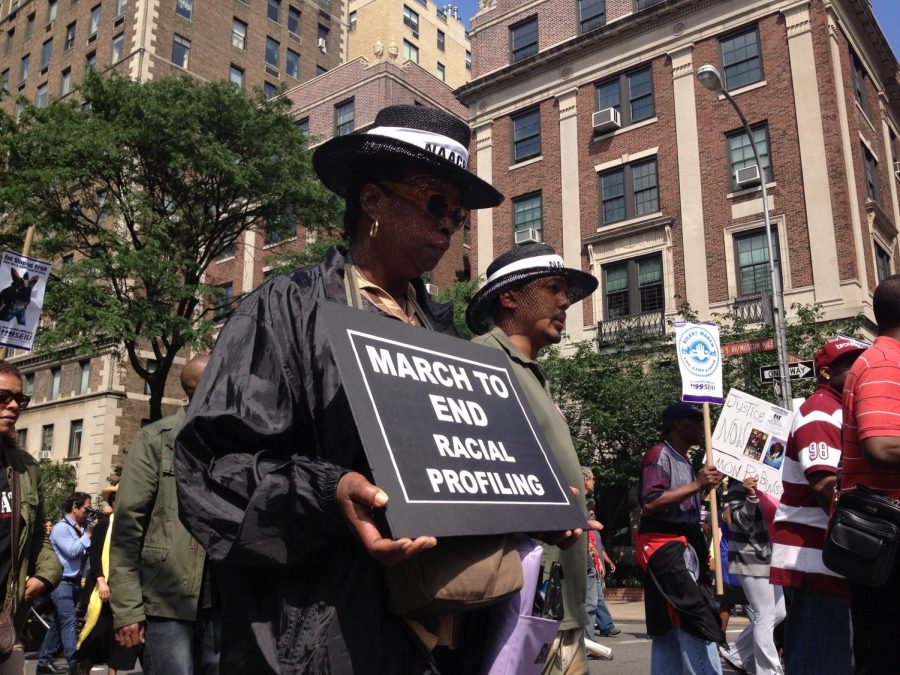Fishers police department needs training to avoid implicit bias, racial profiling
“Silent march to end stop and frisk and racial profiling” by longislandwins is licensed under CC BY 2.0.
Thousands of people march in protest of ‘stop and frisk’ in NYC during the Silent March to end Stop and Frisk in 2012. One of the signs reads “March to end racial profiling.”
Unconsciously attributing traits or associating stereotypes to members of particular social groups makeup two common forms of implicit bias, which is an unconscious prejudice that impacts how people view, react and label others of different races, socioeconomic groups, religions or etc.
On April 19, the Fishers police department posted a photo of a black man standing on the porch of a house. In the post, which has since been deleted, the department stated that he was driving a “beat-up” car and had “no legitimate reason for being in the area.” However, the post never gave a reason as to why people should be wary of him.
This created a problem for me, like many other people who commented on the post. To me, there was an implicit bias within their post. Without providing any information as to why people should watch out for the man, the FPD not only gave off the impression that the reason he was suspicious was due to his race but also endangered the man.
Indiana’s Stand Your Ground law states that people can use force to defend themselves, someone else or their property. So had someone seen the man, that person could have panicked and felt it necessary to defend themself. With the law, that person could have even resorted to deadly force without facing any charges.
The FPD’s original post showed signs of racial profiling. The American Civil Liberties Union defines racial profiling as “the discriminatory practice by law enforcement officials of targeting individuals for suspicion of crime based on the individual’s race, ethnicity, religion or national origin.”
While the FPD did address that their original post was “wrong,” I believe they should start going through implicit bias training like members of the Indianapolis Metropolitan Police Department has over the course of the past year to avoid any situation like this in the future. The FPD needs to reflect on this situation and use it to improve how they handle implicit bias and racial profiling in future cases.

Ashley is the copy editor of the newspaper and is currently a senior. In her future, she wants to get a job that allows her to travel all around the world....






